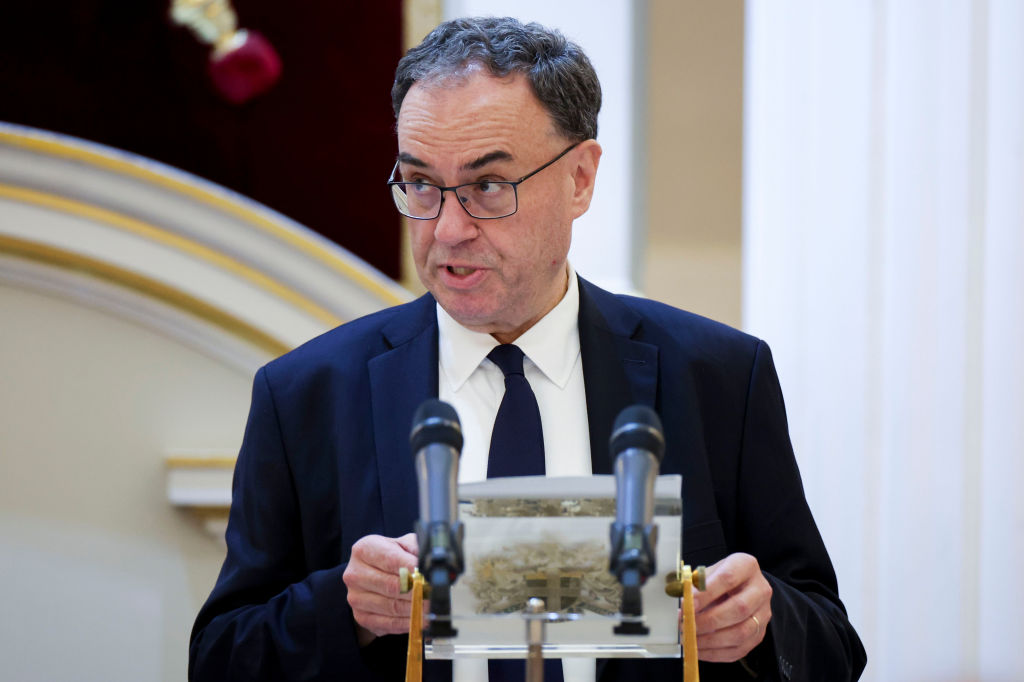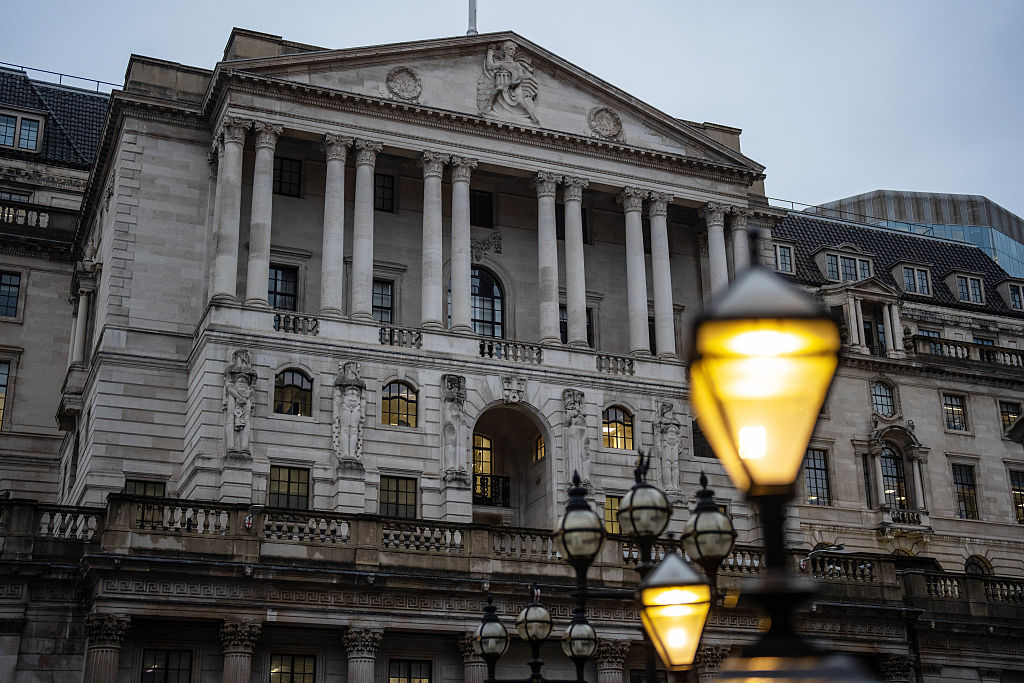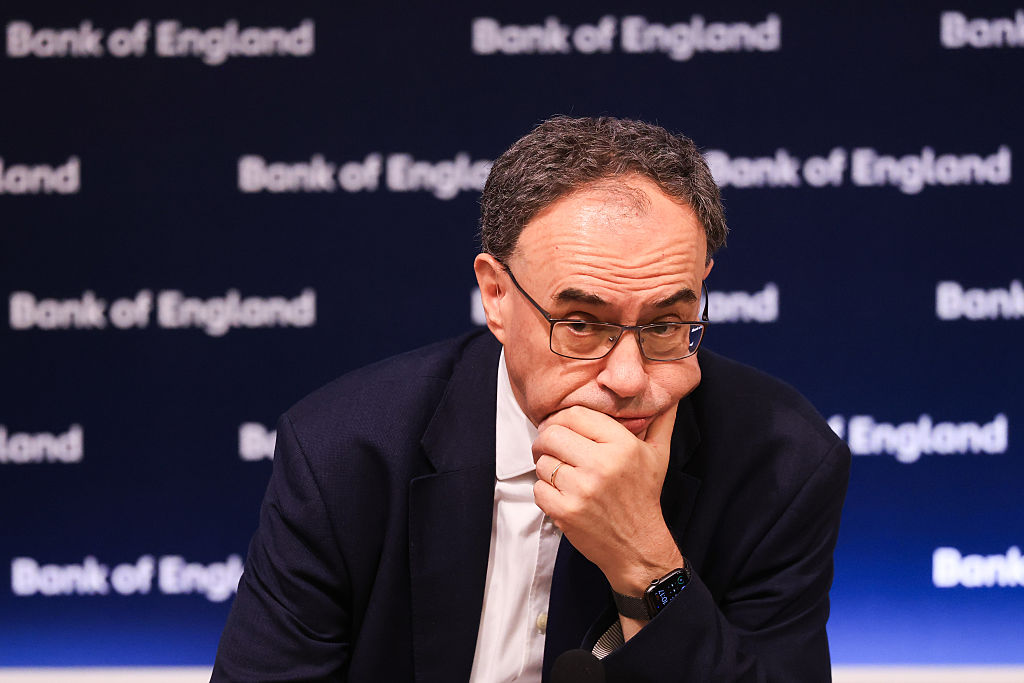Unemployment remains at five-year high as wage growth continues to slow
Unemployment in the UK held at 5.1% in the three months to November as wage growth fell again month-on-month.


Get the latest financial news, insights and expert analysis from our award-winning MoneyWeek team, to help you understand what really matters when it comes to your finances.
You are now subscribed
Your newsletter sign-up was successful
Want to add more newsletters?

Twice daily
MoneyWeek
Get the latest financial news, insights and expert analysis from our award-winning MoneyWeek team, to help you understand what really matters when it comes to your finances.

Four times a week
Look After My Bills
Sign up to our free money-saving newsletter, filled with the latest news and expert advice to help you find the best tips and deals for managing your bills. Start saving today!
Unemployment in the UK held at a five-year high in the three months to November 2025, remaining at 5.1%, according to new data published by the Office for National Statistics (ONS).
The latest figures show joblessness is now the highest it has been since January 2021, when the country was still reeling from the economic shock of the Covid-19 pandemic.
With the highest unemployment rate in half a decade, there were 2.5 unemployed people for every vacancy in the jobs market in the three months to November. This is up from 2.4 in the previous quarter and up from 1.9 in the previous year.
MoneyWeek
Subscribe to MoneyWeek today and get your first six magazine issues absolutely FREE

Sign up to Money Morning
Don't miss the latest investment and personal finances news, market analysis, plus money-saving tips with our free twice-daily newsletter
Don't miss the latest investment and personal finances news, market analysis, plus money-saving tips with our free twice-daily newsletter
Unemployment has slowly crept up in the UK since a recent low of 3.6% in the three months to August 2022. However, it has accelerated since the quarter to July 2025 as joblessness increased by 0.4 percentage points in just three months.
Some commentators believe that the blame for this recent increase lies at the door of chancellor Rachel Reeves, who made hiring more expensive in her first Autumn Budget in 2024 by raising employer National Insurance contributions.
The employment rate (measured slightly differently from the unemployment rate) in the UK remained virtually unchanged in the three months to November, standing at 75.1%, up from 74.9% in the three months to October.
Meanwhile, the ONS’s data also shows the number of payrolled employees fell in the 12 months to December 2025, going down by 184,000 (0.6%).
The number of payrolled employees also fell month-on-month between November and December, decreasing by 43,000 (0.1%). Payrolls fell by 184,000 (0.6%) in the 12 months to December 2025.
Liz McKeown, director of economic statistics at the ONS, said: “The number of employees on payroll has fallen again, with reductions over the last year concentrated in retail and hospitality, and reflecting ongoing weak hiring activity. Meanwhile unemployment remains at the rate reported last month, up on the quarter and the year.
“While there was a slight increase in vacancies in the latest period, the overall number has remained broadly flat over the last six months, following a long decline.”
Alice Haine, personal finance analyst at Bestinvest, said: “The UK jobs market continued to soften in the three months to November, highlighting the uncertainty that weighed on the economy in the run-up to chancellor Rachel Reeves’ Autumn Budget on November 26.
"Employers were already contending with higher employment costs and a lacklustre economic backdrop ahead of the fiscal statement, with relentless Budget speculation only adding to those pressures.
“This steady drip of policy leaks dented business confidence and slowed hiring activity as firms and households battened down the hatches in anticipation of further unwelcome news.”
Wage growth continues to slow
Employees’ average regular earnings grew by 4.5% in the three months to November, the ONS says, down slightly from 4.6% in the three months to November.
The new data brings the average regular weekly earnings for those working in the UK to £689, rising to £741 for total pay.
When including bonuses, wage growth was slightly higher (4.7%), but there was still a month-on-month 0.1 percentage point fall.
Even when excluding bonuses, wages continue to grow faster than inflation, which was stubbornly high for much of 2025, but is expected to fall closer to the 2% target throughout 2026.
It means employees were getting real-terms pay rises of around 0.6% in the three months to November on their regular earnings, and of 0.8% on total earnings.
The public sector continued to lead pay growth in the three months to November, as average regular earnings grew by 7.9% for those employed by the government. Private sector workers averaged regular pay growth of just 3.6%.
Sarah Coles, head of personal finance at Hargreaves Lansdown, said: “There’s a huge difference between wage inflation in the public sector – at 7.9% and the private sector – at 3.6%.
“This owes much to the fact that some public sector pay rises were paid earlier in 2025 than a year earlier, which will even out in the next few months, automatically bringing the rate down.
“Once that’s worked its way out of the figures, wage rises will look decidedly less robust. Given they’re currently only 1.1% after inflation, this will be one to watch.”
Will a softer labour market mean more interest rate cuts?
The Bank of England (BoE) had their latest interest rates meeting on 18 December. There, the BoE’s Monetary Policy Committee (MPC) cut rates by 25 basis points to 3.75%.
Its decision to cut rates came off the back of better-than-expected inflation readings and evidence that there is more slack in the labour market.
While a weakening jobs market is not a good economic indicator, the silver lining is that a higher unemployment rate tends to be a disinflationary force.
As unemployment has remained high, does that mean another rate cut could be on the cards at the MPC’s next meeting on 5 February?
The answer is that it is difficult to say. While a softening labour market is certainly a positive indicator for rate cuts, there is much more that goes into the decision than just that.
Sanjay Raja, chief UK economist at Deutsche Bank, believes that the latest set of labour market data supports the case for a rate cut in the future – but that this may not happen in February.
He said: “The easing in wage inflation will give many on the MPC some comfort that pay growth is moving closer to more target-consistent levels. Further rate cuts seem inevitable, in our view – though questions around timing of rate cuts will only increase from here.”
Kevin Brown, savings expert at Scottish Friendly, shares this view. He said: “Even though cooling wage growth is exactly what the Bank of England will have wanted to see in today’s figures, the chances of a rate cut in February are unlikely.
“The BoE is nervous about stoking inflation, so it won’t risk doing anything that adds to price pressures. Add to this the trade tensions that have resurfaced in the past few days it’s likely that the BoE will want to continue to proceed cautiously.
“While we still believe it is more likely than not that the BoE will cut rates two more times this year, today’s data may have delayed the arrival of those cuts slightly. It may well be that we have to wait until the end of spring for rates to fall again, unless we see another sharp fall in inflation.”
Sanjay Raja, chief UK economist at Deutsche Bank, echoes this. He said: “The easing in wage inflation will give many on the MPC some comfort that pay growth is moving closer to more target-consistent levels. Further rate cuts seem inevitable, in our view – though questions around timing of rate cuts will only increase from here.”
Get the latest financial news, insights and expert analysis from our award-winning MoneyWeek team, to help you understand what really matters when it comes to your finances.

Daniel is a financial journalist at MoneyWeek, writing about personal finance, economics, property, politics, and investing.
He covers savings, political news and enjoys translating economic data into simple English, and explaining what it means for your wallet.
Daniel joined MoneyWeek in January 2025. He previously worked at The Economist in their Audience team and read history at Emmanuel College, Cambridge, specialising in the history of political thought.
In his free time, he likes reading, walking around Hampstead Heath, and cooking overambitious meals.
-
 ISA fund and trust picks for every type of investor – which could work for you?
ISA fund and trust picks for every type of investor – which could work for you?Whether you’re an ISA investor seeking reliable returns, looking to add a bit more risk to your portfolio or are new to investing, MoneyWeek asked the experts for funds and investment trusts you could consider in 2026
-
 The most popular fund sectors of 2025 as investor outflows continue
The most popular fund sectors of 2025 as investor outflows continueIt was another difficult year for fund inflows but there are signs that investors are returning to the financial markets
-
 Why investors can no longer trust traditional statistical indicators
Why investors can no longer trust traditional statistical indicatorsOpinion The statistical indicators and data investors have relied on for decades are no longer fit for purpose. It's time to move on, says Helen Thomas
-
 Is the Office for National Statistics fit for purpose?
Is the Office for National Statistics fit for purpose?Britain’s statistics authority, the Office for National Statistics, is increasingly unfit for purpose. Why, and what can be done?
-
 UK inflation forecast: where are prices heading next?
UK inflation forecast: where are prices heading next?UK inflation rose in December. Are we in for another period of rising inflation – or was the increase just a blip?
-
 Uncertainty ahead of the Budget causes house price growth to stall, says Rightmove
Uncertainty ahead of the Budget causes house price growth to stall, says RightmoveProperty website Rightmove says asking prices increased by just 0.3% in October, well below the 1.3% average for the month
-
 ONS: UK economy grew by 0.3% in November – what does it mean for interest rates?
ONS: UK economy grew by 0.3% in November – what does it mean for interest rates?The latest Office for National Statistics (ONS) GDP figures are a boon for the government, but what does it mean for interest rates?
-
 UK inflation: Consumer Prices Index release dates
UK inflation: Consumer Prices Index release datesThe UK’s inflation reports are published monthly. When do they come out and where are prices heading?
-
 When is the next Bank of England base rate meeting?
When is the next Bank of England base rate meeting?The Bank of England cut interest rates to 3.75% in December 2025. When is the next Monetary Policy Committee meeting and will interest rates fall further in 2026?
-
 UK GDP: UK economy stagnates
UK GDP: UK economy stagnatesLatest GDP data shows the UK economy showed no growth in the third quarter of the year due to rising interest rates. But have we side-stepped a recession?